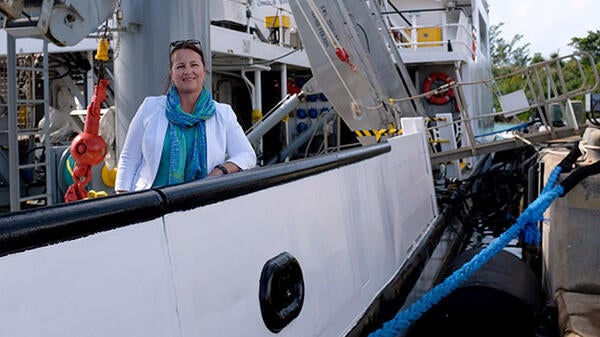Deborah Moran spent years working in Bermuda’s maritime industry, earning her SCUBA certification at age 16, qualifying as a PADI Open Water Instructor at 21, and a year later obtaining a Bermuda pilot’s license. She spent the next 15 years captaining boats and leading dive trips around the island’s reefs and shipwrecks. Working in the tourist diving industry, “it was three dives a day, seven days a week,” Moran said. “I’ve spent thousands of hours on and under the water around Bermuda.”
Unraveling the Microbial Mysteries of Sargassum Seaweed
October 26, 2018
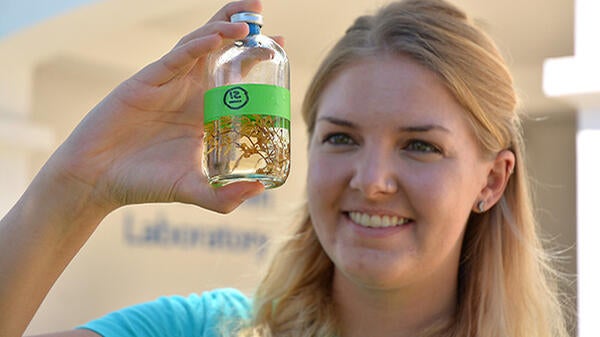
Many oceanographers consider the Sargasso Sea to be an “ocean desert,” as high salinity and calm prevailing winds—resulting in lower nutrient supplies—make it a rather hostile place for life compared to other marine environments. For researchers like Dani Cox, a student at the University of California Santa Barbara (UCSB), this raises questions about how Sargassum, a ubiquitous brown algae, not only survives, but thrives.
A Big Project for Small Organisms—and the Atmosphere
October 26, 2018
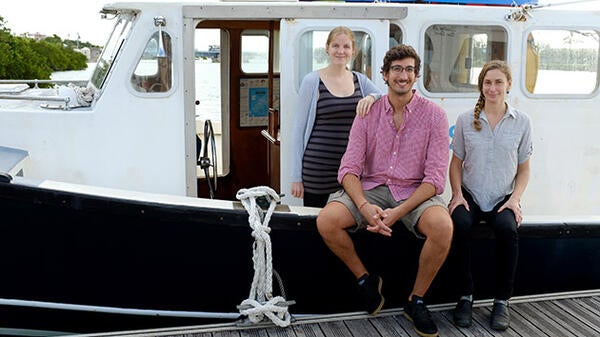
A multidisciplinary team of scientists, including a group from BIOS, spent six weeks this summer focused on the Pacific Ocean to study the lives and deaths of plankton, organisms that play a critical role in removing carbon dioxide from the atmosphere and in the ocean’s carbon cycle.
A Special BIOS Reunion
November 28, 2018
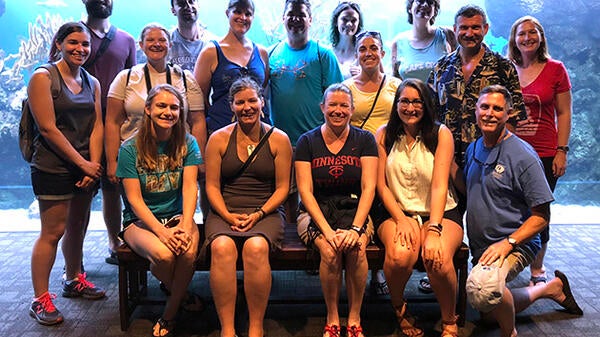
Ed Argenta, a teacher consultant with the Connecticut Geographic Alliance, first came to BIOS almost 40 years ago when he was teaching science at Vernon Center Middle School in central Connecticut. At the time, his colleague Duffy Brookes, had been taking groups of students to BIOS since 1970 as part of an advanced marine studies program. In 1979, Brookes invited Argenta on one of these weeklong “Vernon Bermuda Workshop” trips and, since then, the pair have brought at least one group of students—and sometimes two or more—every year to BIOS for a course in tropical island ecology and ocean science studies.
Navigating New Experiences in Bermuda
November 28, 2018
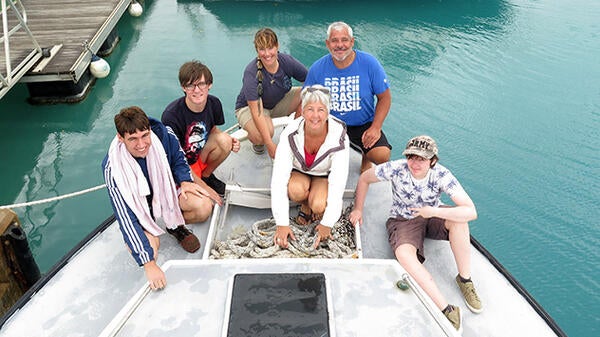
To visit Nonsuch Island, a lush 14-acre nature reserve located at the east end of Bermuda, the last stretch requires guests to jump from a boat and swim a short distance to shore. For some teens, this may seem like a cool adventure. For those juggling emotional challenges that range from attention disorders and depression to mental health issues, it presents a different hurdle.
An Ocean Sciences Icon Turns 30
November 28, 2018
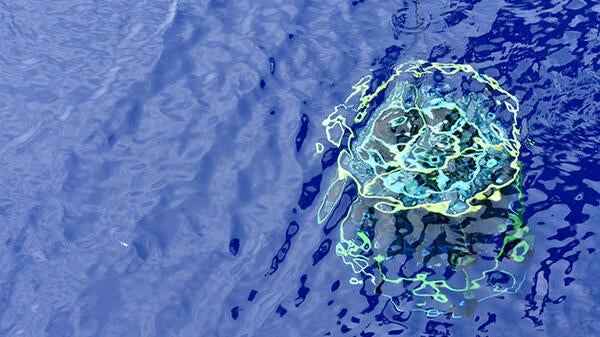
Three decades ago, scientists came to Bermuda to address “big picture” questions about the ocean by collecting data on fundamental physical, chemical, and biological parameters throughout the water column in the Sargasso Sea. They knew that critical questions about how the ocean functions, such as how it responds to global climate change, could only be answered by the collection and subsequent analysis of data gathered continuously over a long period, also known as a time-series study.
The Ocean’s Tiny Records of Climate Change
November 28, 2018
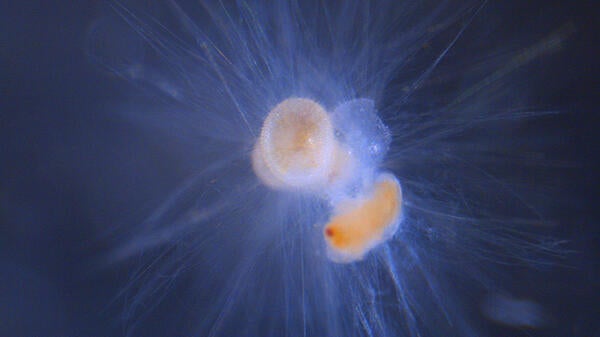
We have known for decades that scientists can learn about local climate conditions by studying the growth rings in trees. Wide rings form in warmer years with more precipitation; thinner rings indicate a colder, dryer growing season; and scars provide evidence of external environmental factors, such as forest fires and insect infestations.
A New Tool for Coral Research
November 28, 2018
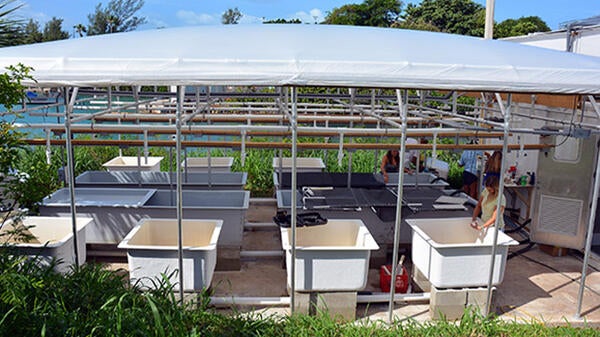
Corals, with their calcium carbonate skeletons and symbiotic photosynthetic algae, are among the first organisms to be negatively impacted by climate change. Warming waters cause coral to expel the algae, called zooxanthellae, while a gradually acidifying ocean, resulting from increased amounts of atmospheric carbon dioxide dissolved in the seawater, can weaken and even dissolve coral skeletons.
Meet the Supervisors Who Helped to Shape Four Scientists’ Careers
January 29, 2019
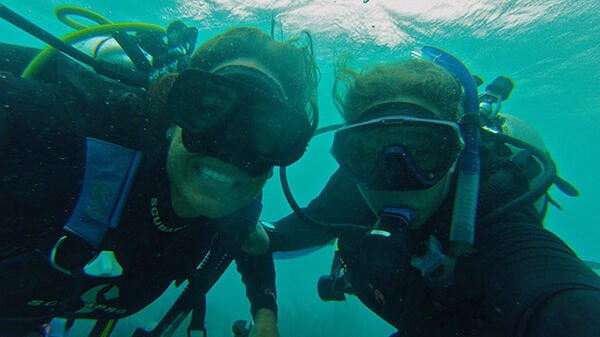
Supervisors can help to shape the lives and careers of their students and trainees. Sometimes, they become lifelong mentors and eventual collaborators, contributing to a new generation of scientific discovery. And students can forge meaningful relationships with those senior scientists even at the earliest stages of their science careers.
Enhancing Education Through Experience
January 29, 2019
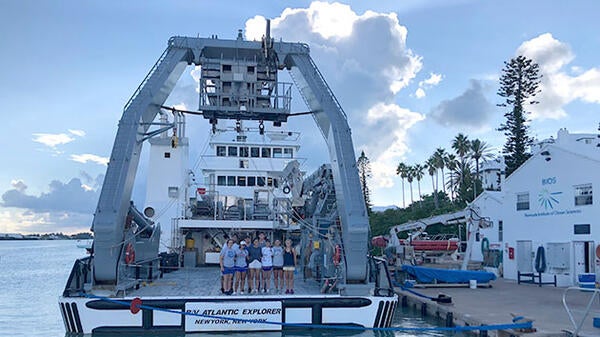
Each spring, BIOS is one of more than 350 colleges, universities, medical centers, professional organizations, and research institutions that accepts undergraduate students as part of the National Science Foundation (NSF) Research Experiences for Undergraduates (REU) program. For more than 30 years, the REU program has given U.S. students the opportunity to conduct hands-on research in science, technology, engineering, and mathematics (STEM) fields as part of their undergraduate education.
